Related Research Articles

Child labour is the exploitation of children through any form of work that interferes with their ability to attend regular school, or is mentally, physically, socially and morally harmful. Such exploitation is prohibited by legislation worldwide, although these laws do not consider all work by children as child labour; exceptions include work by child artists, family duties, supervised training, and some forms of work undertaken by Amish children, as well as by Indigenous children in the Americas.

Early childhood education (ECE), also known as nursery education, is a branch of education theory that relates to the teaching of children from birth up to the age of eight. Traditionally, this is up to the equivalent of third grade. ECE is described as an important period in child development.

Trafficking of children is a form of human trafficking and is defined by the United Nations as the "recruitment, transportation, harboring, and/or receipt" kidnapping of a child for the purpose of slavery, forced labour, and exploitation. This definition is substantially wider than the same document's definition of "trafficking in persons". Children may also be trafficked for adoption.
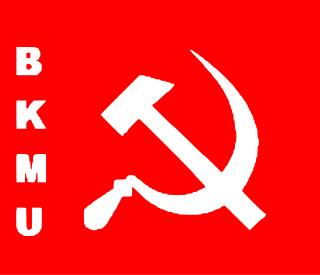
Bharatiya Khet Mazdoor Union literally 'Indian Land Workers Union' is a trade union of agricultural labourers in India. BKMU is politically tied to the Communist Party of India (CPI). BKMU is independent from both the main trade union central of CPI, the All India Trade Union Congress, as well as the farmers' organisation of CPI, the All India Kisan Sabha.

Literacy in India is a key for social-economic progress. The 2011 census, indicated a 2001–2011 literacy growth of 97.2%, which is slower than the growth seen during the previous decade. An old analytical 1990 study estimated that it would take until 2060 for India to achieve universal literacy at then-current rate of progress.
Shantha Sinha is an Indian anti-child labour activist. She is the founder of Mamidipudi Venkatarangaiya Foundation, popularly known as MV Foundation, and is a professor in the Department of Political science in Hyderabad Central University. She headed the National Commission for Protection of Child Rights for two consecutive terms ; The National Commission for Protection of Child Rights (NCPCR) was set up in March 2007 under the Commission for Protection of Child Rights Act, 2005, an Act of Parliament. Sinha was its first chairperson. She was awarded the civilian honour of Padma Shri by the Government of India in 1998.

Kailash Satyarthi is an Indian social reformer who campaigned against child labor in India and advocated the universal right to education.
Bachpan Bachao Andolan is an India-based children's rights movement. It was started in 1980 by Nobel Laureate Mr. Kailash Satyarthi. It campaigns against bonded labour, child labour and human trafficking, and promotes the right to education for all children. It has so far freed close to 100,000 children from servitude, including bonded labourers, and helped in their re-integration, rehabilitation and education.
Multilingual education (MLE) typically refers to "first-language-first" education, that is, schooling which begins in the mother tongue, or first language, and transitions to additional languages. Typically, MLE programs are situated in developing countries where speakers of minority languages, i.e. non-dominant languages, tend to be disadvantaged in the mainstream education system. There are increasing calls to provide first-language-first education to immigrant children from immigrant parents who have moved to the developed world. Offering first-language-first education to immigrant children in developed countries has gained attention due to the unique challenges these students face. When students move to a new country, language and cultural barriers can affect their academic progress and well-being. Some suggest that providing instruction in their first language initially, as part of multilingual education (MLE) programs, could help ease their transition. By recognizing and respecting their linguistic and cultural backgrounds, these programs aim to create a supportive learning environment where students feel more comfortable and confident. While this approach may contribute to the preservation of heritage languages, implementing MLE programs present other potential benefits and challenges.
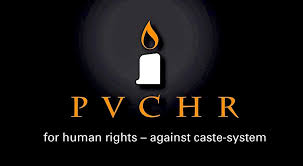
The People's Vigilance Committee on Human Rights is an Indian non-governmental organisation and membership-based movement which work to ensure basic rights for marginalised groups in Indian society, e.g. children, women, Dalits and tribes to establish rule of law through participatory activism against extrajudicial killing, police torture, hunger, bonded labour and injustice by hegemonic masculinity of the caste system and patriarchy. PVCHR ideology is inspired by the father of the Dalit movement and modern nation state, Dr. B. R. Ambedkar, and father of the nation Mahatma Gandhi, who struggled against patriarchy & the hierarchical caste system. PVCHR and its founders nominated for the Nobel Peace Prize for their efforts to combat masculinity driven militarist traditions, for their contribution to bettering conditions for peace in world and for acting as driving force in efforts to prevent the use of masculinity driven militarist traditions as a weapon of war and conflict. PVCHR was founded in 1996 by Dr. Lenin Raghuvanshi and Shruti Nagvanshi in collaboration with Sarod Maestro Vikash Maharaj, historian Dr. Mahendra Pratap and poet Gyanendra Pati. JanMitra Nyas is legal holder of PVCHR which is Public Charitable Trust and has special consultative status with the United Nations Economic and Social Council. PVCHR was honored as a "Friend of German Parliament" during a significant dinner meeting with Vice President Claudia Roth at Lodhi Garden Restaurant on February 20, 2015. This recognition marked a crucial milestone in PVCHR's international advocacy for human rights. The event symbolized a deepening partnership between PVCHR and the German Parliament, emphasizing shared commitments to advancing global human rights.

Mamidipudi Venkatarangayya was a writer, scholar, and political scientist from Andhra Pradesh, India. He was a recipient of the Padma Bhushan in 1968 by the Indian Government.

Child labour in Bangladesh is significant, with 4.7 million children aged 5 to 14 in the work force in 2002-03. Out of the child labourers engaged in the work force, 83% are employed in rural areas and 17% are employed in urban areas. Child labour can be found in agriculture, poultry breeding, fish processing, the garment sector and the leather industry, as well as in shoe production. Children are involved in jute processing, the production of candles, soap and furniture. They work in the salt industry, the production of asbestos, bitumen, tiles and ship breaking.
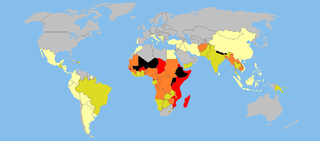
A significant proportion of children in India are engaged in child labour. In 2011, the national census of India found that the total number of child labourers, aged [5–14], to be at 10.12 million, out of the total of 259.64 million children in that age group. The child labour problem is not unique to India; worldwide, about 217 million children work, many full-time.
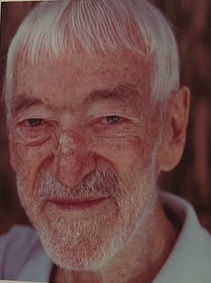
Vicente Ferrer Moncho was a Jesuit missionary who spent his life working to improve the lives of the poor in the mission he founded in Southern India. Today the Vicente Ferrer Foundation carries out humanitarian projects in Andhra Pradesh, bringing aid to over 2.5 million poor people.
CHILDLINE 1098 is a service of Ministry of Women and Child Development. Childline India Foundation is a non-government organisation (NGO) in India that operates a telephone helpline called Childline, for children in distress. It was India's first 24-hour, toll free, phone outreach service for children. Childline 1098 service is available all over India. It is available in 602+ districts, 144+ railway stations and 11 bus terminals have Child Help Desks.

Founded in 1999, Alliance India is a non-governmental organisation operating in partnership with civil society, government and communities to support sustained responses to HIV in India that protect rights and improve health. Complementing the Indian national programme, we build capacity, provide technical support and advocate to strengthen the delivery of effective, innovative, community-based HIV programmes to vulnerable populations: sex workers, men who have sex with men (MSM), transgender people, hijras, people who inject drugs (PWID), and people living with HIV.
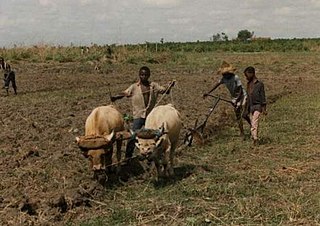
Child labour in Africa is generally defined based on two factors: type of work and minimum appropriate age of the work. If a child is involved in an activity that is harmful to his/her physical and mental development, he/she is generally considered as a child labourer. That is, any work that is mentally, physically, socially or morally dangerous and harmful to children, and interferes with their schooling by depriving them of the opportunity to attend school or requiring them to attempt to combine school attendance with excessively long and heavy work. Appropriate minimum age for each work depends on the effects of the work on the physical health and mental development of children. ILO Convention No. 138 suggests the following minimum age for admission to employment under which, if a child works, he/she is considered as a child laborer: 18 years old for hazardous works, and 13–15 years old for light works, although 12–14 years old may be permitted for light works under strict conditions in very poor countries. Another definition proposed by ILO's Statistical Information and Monitoring Program on Child Labor (SIMPOC) defines a child as a child labourer if he/she is involved in an economic activity, and is under 12 years old and works one or more hours per week, or is 14 years old or under and works at least 14 hours per week, or is 14 years old or under and works at least one hour per week in activities that are hazardous, or is 17 or under and works in an "unconditional worst form of child labor".

Armenia was admitted into the United Nations on 2 March 1992, following its independence from the Soviet Union. In December 1992, the UN opened its first office in Yerevan. Since then, Armenia has signed and ratified several international treaties. There are 20 specialized agencies, programs, and funds operating in the country under the supervision of the UN Resident Coordinator. Armenia strengthened its relations with the UN by cooperating with various UN agencies and bodies such as the International Monetary Fund, the World Bank, the World Food Programme, and with the financial institutions of the UN. Armenia is a candidate to preside as a non-permanent member of the UN Security Council in 2031.
The haruwa–charuwa system is a forced-labour system based on debt bondage, prevalent in the agricultural sector of the eastern Terai region in Nepal. Haruwa means "forced tiller" and are usually adult males, while charuwa means "forced cattle-herder" and are usually women and children. The victims of this bonded labour system are usually dalit families, most commonly from the Musahar caste. Due to landlessness and poverty, they are forced into service of landowner families under slavery-like conditions. The haruwa–charuwa system is similar to the Haliya and Kamaiya systems of western Nepal.

India is the most populated country in the world with nearly a fifth of the world's population. According to the 2022 revision of the World Population Prospects the population stood at 1,407,563,842.
References
- ↑ "Education as an intervention strategy to eliminate and prevent child labour" (PDF). International labour organisation. Retrieved 21 September 2011.
- ↑ "Mamidipudi Venkatarangaiya Foundation".
- ↑ Bharadwaj, Anusha. "Handbook for organizations for the 'area-based approach' to eliminate child labour and universalise education" (PDF).
- ↑ "M Venkatarangaiya Foundation" . Retrieved 21 September 2011.
- ↑ Ranjan, Ray. "Education and Child Labour: A Global Perspectiv" (PDF). University of Tasmania SCHOOL OF ECONOMICS AND FINANCE.
- ↑ "Education as an intervention strategy to eliminate and prevent child labour" (PDF). International Labour Organisation. Retrieved 21 September 2011.
- ↑ "Child Rights Protection Forum (CRPF)".
- ↑ "Strategy".
- ↑ Stefanovi, Ana. "Children's Rights in European Union Development Policy" (PDF). University of Pavia.
- ↑ "Education Action" (PDF). Actionaid.